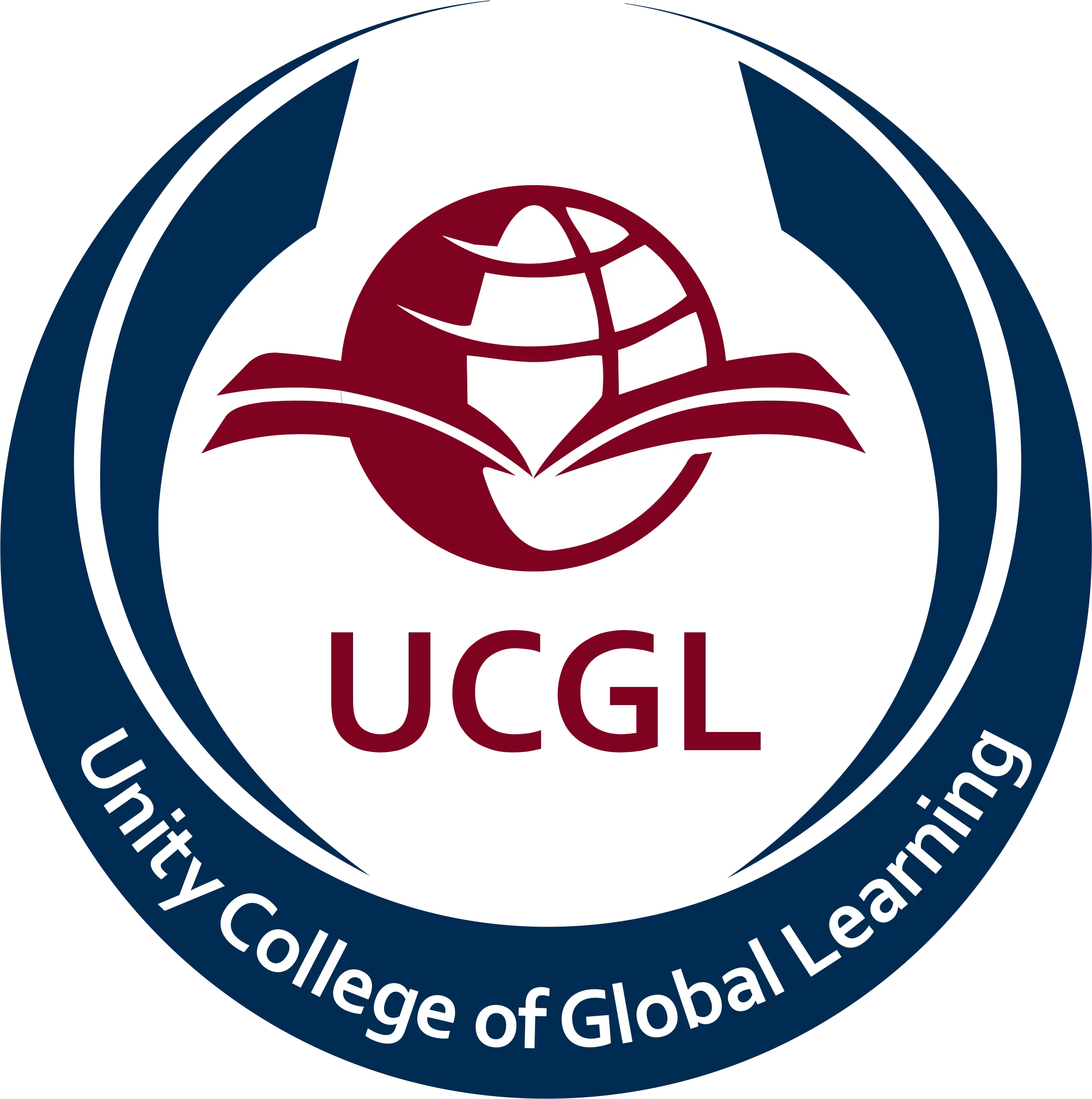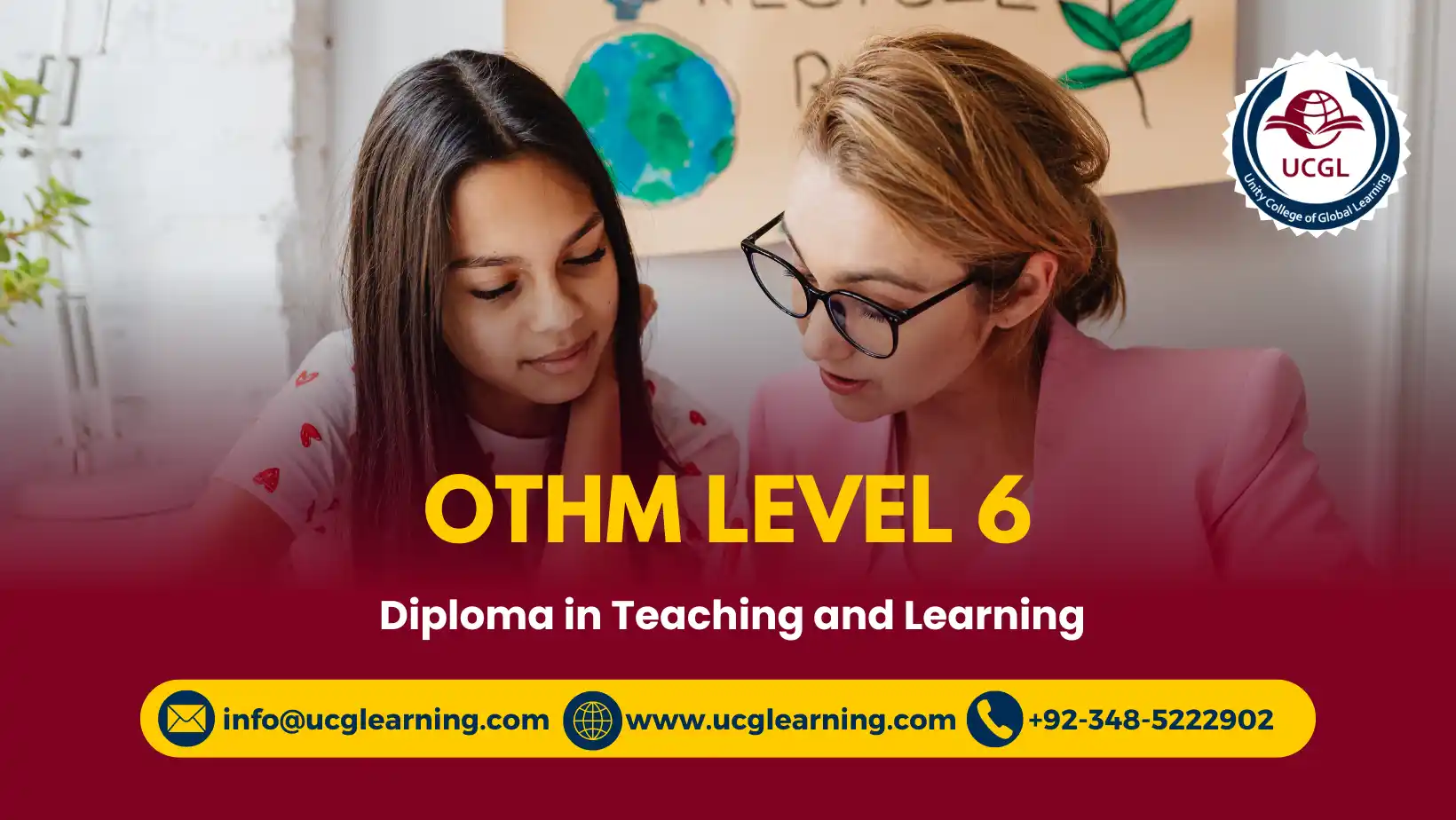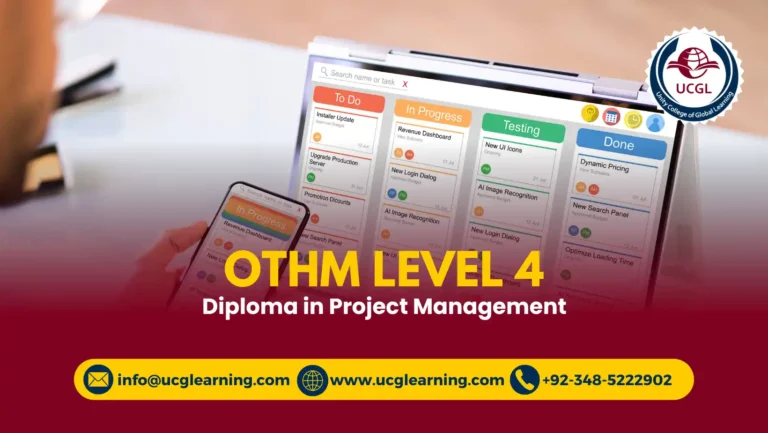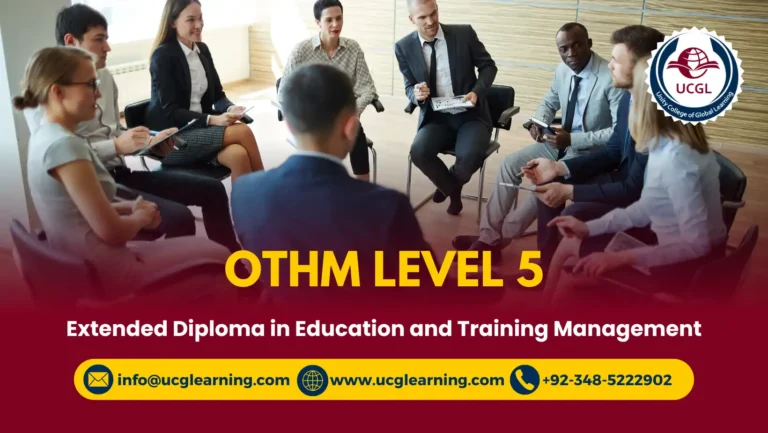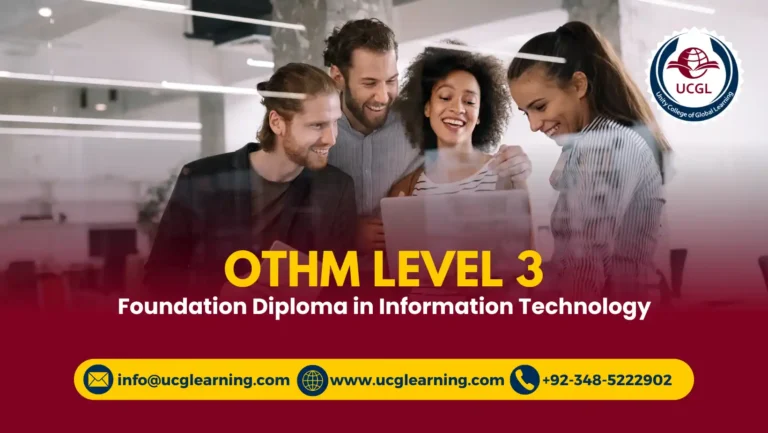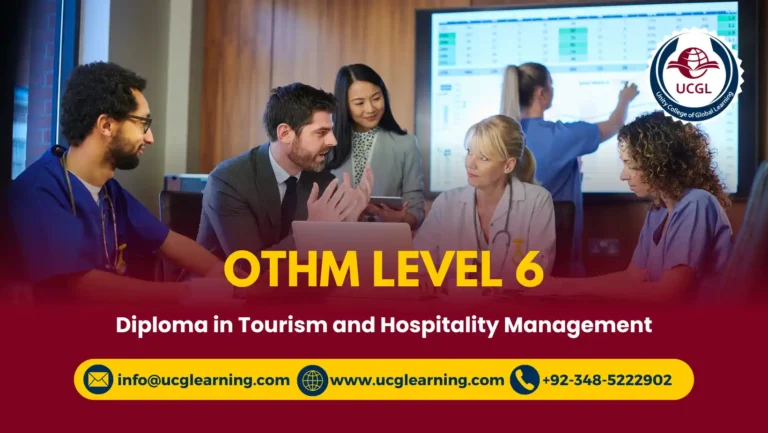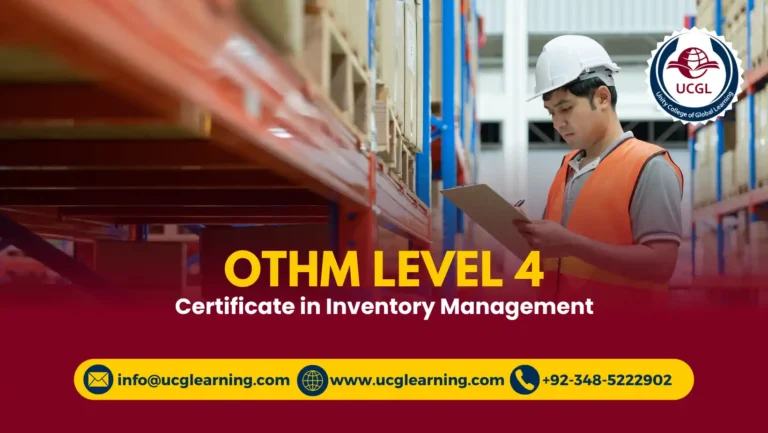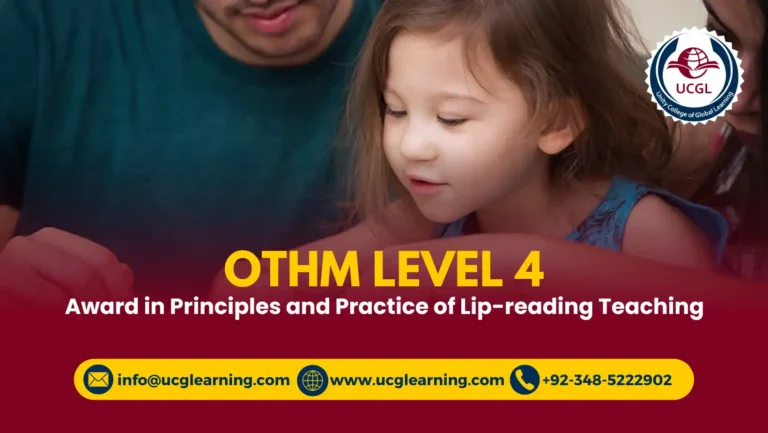OTHM Level 6 Diploma in Teaching and Learning
The Level 6 Diploma in Teaching and Learning offers a comprehensive exploration of pedagogical theories, teaching strategies, curriculum development, assessment practices, and educational leadership principles. Participants will engage in practical learning experiences, reflective exercises, and collaborative projects designed to strengthen their teaching competencies and leadership capabilities in diverse educational contexts.
Course Introduction
Welcome to the Level 6 Diploma in Teaching and Learning, a prestigious program designed to empower educators with advanced skills and knowledge necessary for effective teaching and leadership in educational settings. This diploma is ideal for those aspiring to enhance their teaching methodologies, advance their careers in education, or transition into educational leadership roles.
Course Benefits
- Enhanced Teaching Pedagogy: Deepen understanding of effective teaching methods, instructional techniques, and curriculum design to foster student engagement and academic success.
- Professional Growth: Develop leadership skills and strategic thinking capabilities essential for advancing careers in education or pursuing leadership roles within educational institutions.
- Personalized Learning: Tailor learning experiences to individual student needs through differentiated instruction and inclusive teaching practices.
- Networking Opportunities: Connect with fellow educators, mentors, and industry experts to share insights, collaborate on projects, and stay abreast of current trends and practices in education.
Course Study Units
The Level 6 Diploma in Teaching and Learning includes a range of study units, such as:
- Lesson Planning (20 credits)
- Reflective Teaching (20 credits)
- Management of Class Dynamics (20 credits)
- Curriculum Design (20 credits)
- Integrated Education (20 credits)
- Technology in Education (20 credits)
Learning Outcomes
Lesson Planning (20 credits)
- Effective Planning: Develop comprehensive lesson plans that align with curriculum goals, learning objectives, and student needs.
- Differentiation: Implement differentiated instruction strategies to accommodate diverse learning styles and abilities within the classroom.
- Assessment Integration: Incorporate formative and summative assessment techniques into lesson plans to monitor student progress and inform instructional decisions.
- Engagement and Interaction: Design activities and learning experiences that promote active engagement, collaboration, and critical thinking among students.
Reflective Teaching (20 credits)
- Self-Assessment: Engage in critical self-reflection to evaluate teaching practices, instructional strategies, and classroom management techniques.
- Professional Growth: Identify strengths and areas for improvement based on reflective practice, seeking ongoing professional development opportunities.
- Student Feedback: Solicit and analyze feedback from students to enhance teaching effectiveness and student learning outcomes.
- Action Planning: Develop action plans and set goals for continuous improvement in teaching practices and student engagement.
Management of Class Dynamics (20 credits)
- Classroom Environment: Create a positive and inclusive classroom climate that fosters respect, cooperation, and active participation among students.
- Behavior Management: Implement effective strategies for managing student behavior, promoting a supportive learning environment conducive to academic achievement.
- Conflict Resolution: Address conflicts and challenges within the classroom, fostering open communication and mutual respect among students.
- Time Management: Optimize instructional time and classroom routines to maximize learning opportunities and maintain focus on academic goals.
Curriculum Design (20 credits)
- Curriculum Alignment: Align curriculum goals and objectives with educational standards, student learning outcomes, and societal needs.
- Interdisciplinary Approach: Integrate interdisciplinary perspectives and subjects to create cohesive and interconnected curriculum frameworks.
- Assessment Integration: Develop assessment strategies that align with curriculum objectives, ensuring comprehensive coverage of learning outcomes.
- Adaptation and Innovation: Adapt and innovate curriculum design in response to educational trends, research findings, and evolving student needs.
Integrated Education (20 credits)
- Inclusive Practices: Implement inclusive education strategies to support students with diverse learning needs, including those with disabilities and special educational needs (SEN).
- Collaborative Learning: Foster collaboration and teamwork among students from different backgrounds and abilities, promoting social inclusion and peer support.
- Community Engagement: Partner with families, caregivers, and community stakeholders to enhance support systems and resources for integrated education initiatives.
- Advocacy and Equity: Advocate for equity and accessibility in education, ensuring all students have equal opportunities to succeed and thrive academically.
Technology in Education (20 credits)
- Educational Technology Tools: Utilize educational technologies such as learning management systems (LMS), digital tools, and multimedia resources to enhance teaching and learning experiences.
- Digital Literacy: Develop students’ digital literacy skills and competencies, preparing them to navigate and critically assess information in a digital age.
- Blended Learning: Integrate online learning platforms and digital resources into traditional classroom settings to facilitate personalized learning and engagement.
- Assessment and Feedback: Leverage technology for formative assessment, feedback delivery, and data-driven decision-making to support student growth and achievement.
These learning outcomes equip educators with the knowledge, skills, and competencies needed to excel in lesson planning, reflective teaching practices, classroom management, curriculum design, integrated education, and the effective integration of technology in educational settings.
Who is This Course For?
The Level 6 Diploma in Teaching and Learning is suitable for:
- Educators: Seeking to enhance their teaching competencies and expand their knowledge of educational theories and practices.
- Aspiring Leaders: Interested in pursuing leadership roles such as headteacher, principal, curriculum coordinator, or educational consultant.
- Career Changers: Transitioning into teaching or educational leadership from other fields, aiming to acquire pedagogical expertise and leadership skills.
- Educational Administrators: Looking to strengthen their understanding of educational management, policy development, and strategic planning within educational institutions.
Future Progression for This Course
Completion of the Level 6 Diploma in Teaching and Learning opens up several progression pathways, including:
- Master’s Degree: Pursue advanced studies in education, specializing in areas such as educational leadership, curriculum development, or educational psychology.
- Professional Development: Undertake professional certifications and continuous learning opportunities to stay current with educational trends, research, and best practices.
- Educational Leadership Roles: Advance to leadership positions within educational institutions, such as headteacher, principal, vice principal, or department head.
- Educational Consultancy: Transition into educational consultancy roles, providing expertise and guidance to schools, educational organizations, or government agencies.
Conclusion
The Level 6 Diploma in Teaching and Learning equips educators with the skills, knowledge, and leadership capabilities needed to inspire learning, promote academic excellence, and drive positive educational outcomes. Whether you are a seasoned educator looking to deepen your expertise or a budding professional aiming to make a meaningful impact in education, this diploma offers a transformative learning journey. Embrace the opportunities of educational innovation and leadership by enrolling in this comprehensive program and embarking on a rewarding career path in teaching and learning.
